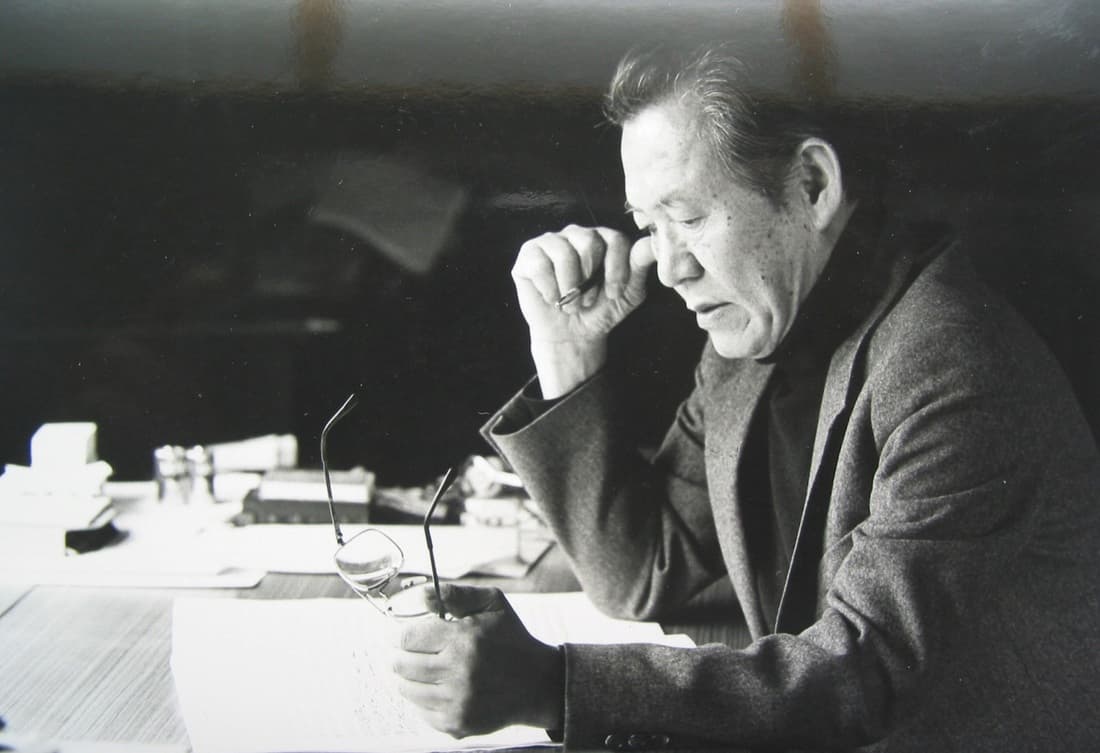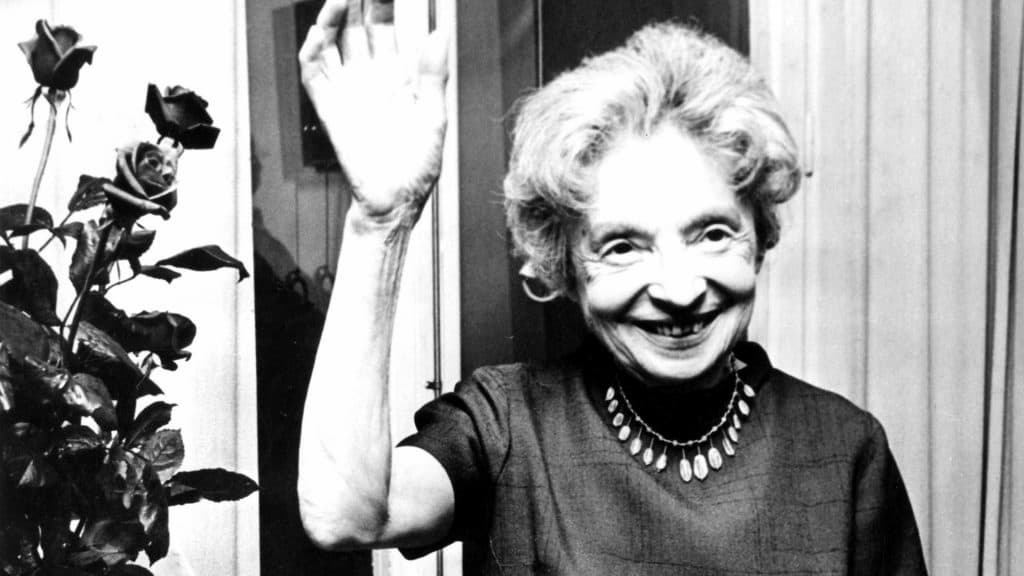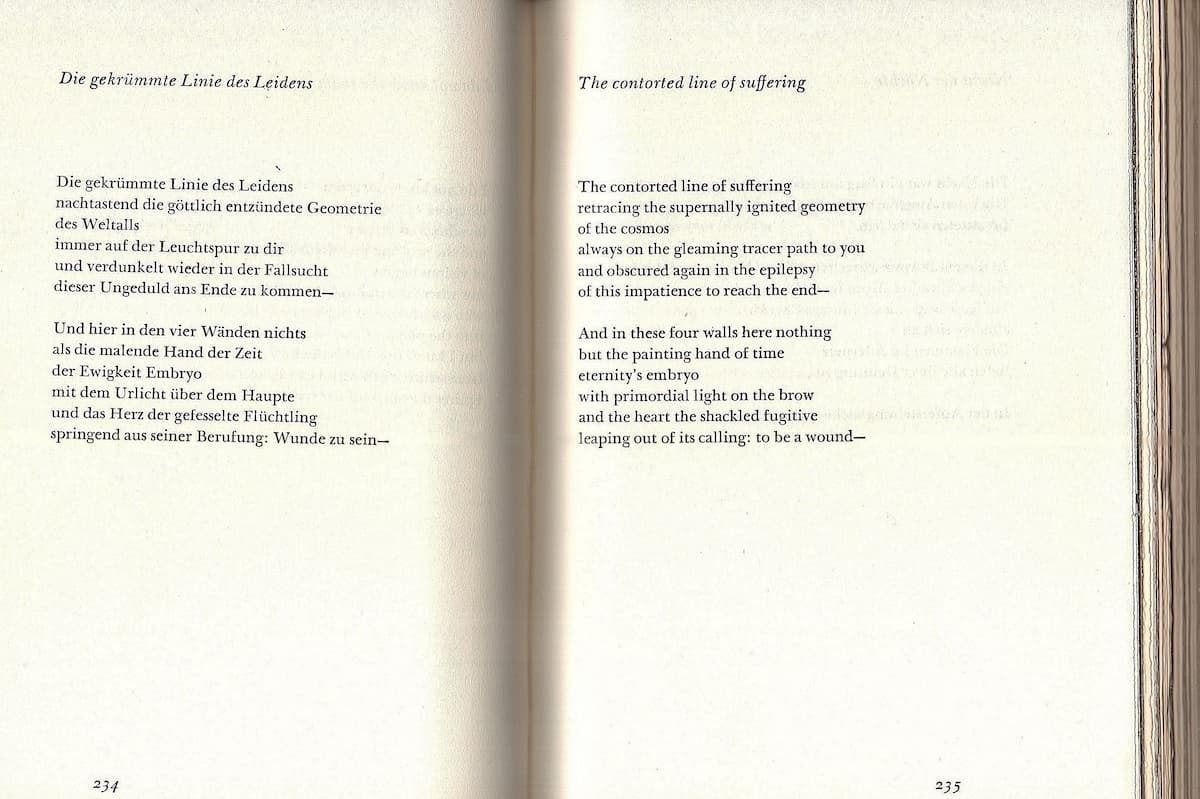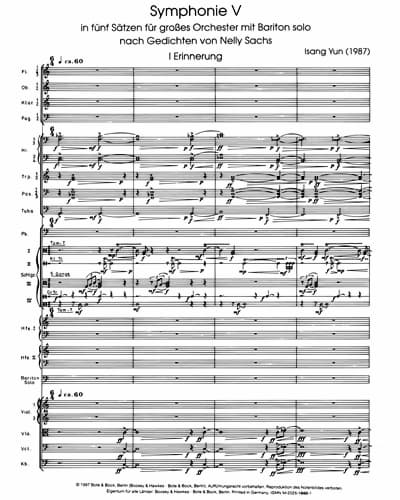Isang Yun’s Symphony V premiered on the composer’s 70th birthday, on 17 September 1987, with Hans Zender conducting the Berlin Philharmonic and Dietrich Fischer-Dieskau as the soloist. Using poems by Nelly Sachs, Yun makes an unambiguous statement of his intentions. The theme of the work is “Peace,” and according to the composer, “it can be realised only by coping with the past and by involvement in the mourning process.”
Isang Yun: Symphony No. 5, I: “Memory” (Dietrich Fischer-Dieskau, baritone; Berlin Philharmonic Orchestra; Hans Zender, cond.)
Political Engagement

Isang Yun
Born under Japanese occupation of the Korean peninsula, Isang Yun was active in the resistance against Japanese oppression and was made a political prisoner in 1943. As he wrote, “A composer cannot view the world in which he lives with indifference. Human suffering, oppression, and injustice… all that come to me in my thoughts. Where there is pain, where there is injustice, I want to have my say through my music.”
Yun studied in Europe, but in 1967, he was abducted from Berlin to Seoul by the Korean secret police, tortured and charged with high treason. In a political show trial, he was sentenced to life imprisonment in the first instance and only released in 1969 after international protests.
Isang Yun: Symphony No. 5, II: “We the Saved” (Dietrich Fischer-Dieskau, baritone; Berlin Philharmonic Orchestra; Hans Zender, cond.)
Flight, Exile and Metamorphosis

Nelly Sachs
The German-Swedish poet and playwright Nelly Sachs received the Nobel Prize for Literature in 1966. Born into a Jewish family in Berlin, Sachs started writing as an adolescent. She became fascinated with Selma Lagerlöf’s work and started a correspondence. Lagerlöf helped Sachs and her mother to flee from Nazi Germany to Sweden in 1940. Several members of Sachs’ immediate family ultimately became victims of the Holocaust.
The fate of the Jewish people, and specifically Nazi persecution, forms the basis for her literary works. With the horrors of the death camps as its ultimate expression, Sachs combined poetry of ancient religious texts with modernist language. Sachs was convinced that the future could not be built on the ruins of hatred and revenge but hoped that her poetry would be an agent of healing and a source of renewal.
Isang Yun: Symphony No. 5, III: “Appeal” (Dietrich Fischer-Dieskau, baritone; Berlin Philharmonic Orchestra; Hans Zender, cond.)
The Commission

Nelly Sachs’ The contorted line of suffering
Yun’s Symphony V was commissioned for the 37th Berlin Festival and “in memory of Nelly Sachs.” The theme of that particular festival was the fate of German artists forced into exile during the Nazi dictatorship. Relying on a total of eleven poems from different creative periods of Sachs’ life, Yun fashioned a five-movement symphony, with the third movement “Appeal for Reconciliation”, placed as the emotional centre and focus.
The second and fourth movements, in the style of a cantata, support the symphonic structure of the first and fifth movements. A commentator writes, “Texts tower up like jagged cliffs from pounding surf, anchored in selections from the Holocaust cycle “In the apartment of death,” to form a montage of complementary contrasts.”
Isang Yun: Symphony No. 5, IV: “You Who Watch” (Dietrich Fischer-Dieskau, baritone; Berlin Philharmonic Orchestra; Hans Zender, cond.)
The Music

Isang Yun’s Symphony V
Yun employs an unusually large number of percussion instruments as well as two harps, and his peace offering extends to roughly 55 minutes. It was originally written for Fischer-Dieskau, and Jonathan Woolf writes, “Yun’s post-Schoenbergian aesthetic is striking, and the skeletal bones of Mahler are visible, at least in schematic form.”
The opening gloomy motive is an intense setting of Sachs’ poem, including a striking orchestral tumult. The pacifist poem in “We the Saved” uses sprechgesang to tell of the need to forsake violence, but the last verse is abruptly silenced by a vicious orchestral slam. The brutal “Appeal” is only momentarily softened by a calm and reflective interlude, and “You Who Watch” features plenty of glissandi and melismatic singing. “Peace” is basically Yun’s “Abschied,” as the composer “finally unleashes his hieratic, implacable brass, percussive bells as the complex unravelling begins and the work achieves a kind of felt resolution.”
For more of the best in classical music, sign up for our E-Newsletter
Isang Yun: Symphony No. 5, V: “Peace” (Dietrich Fischer-Dieskau, baritone; Berlin Philharmonic Orchestra; Hans Zender, cond.)
